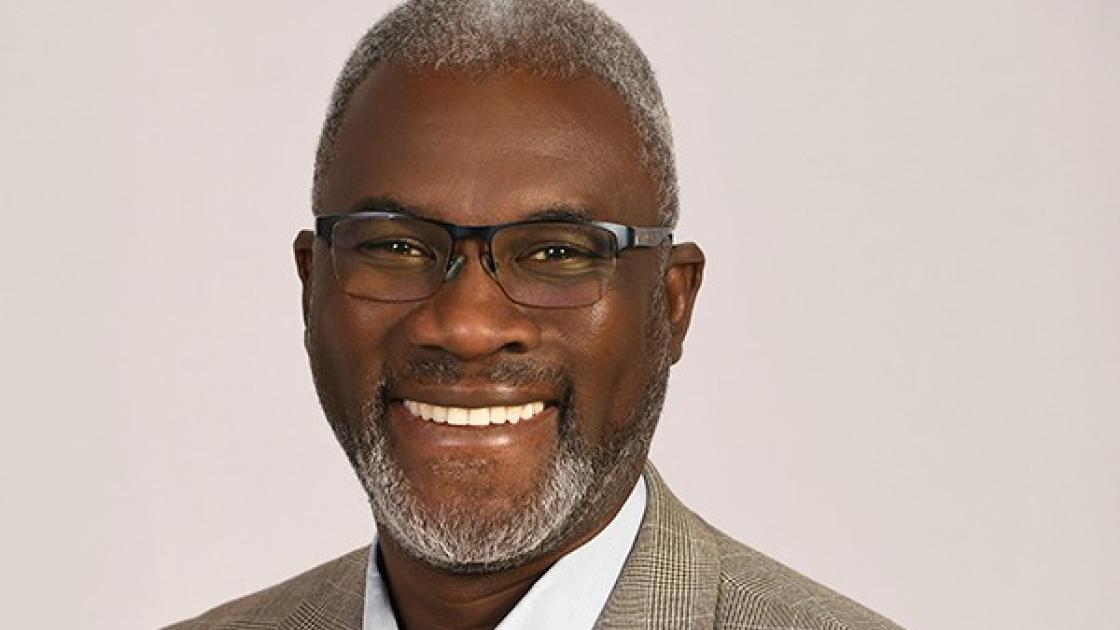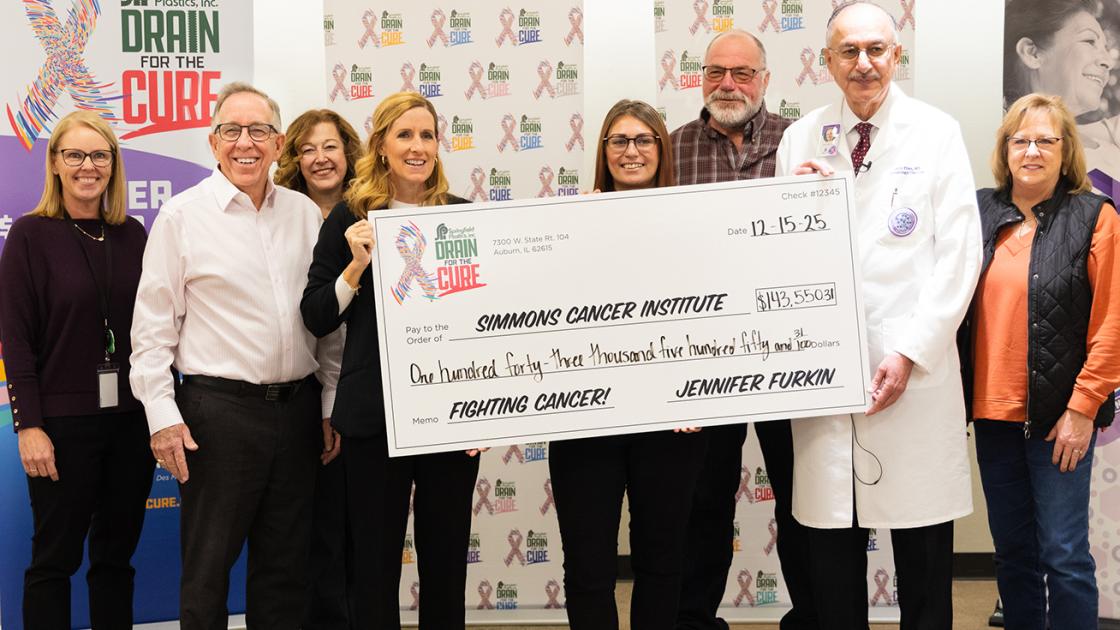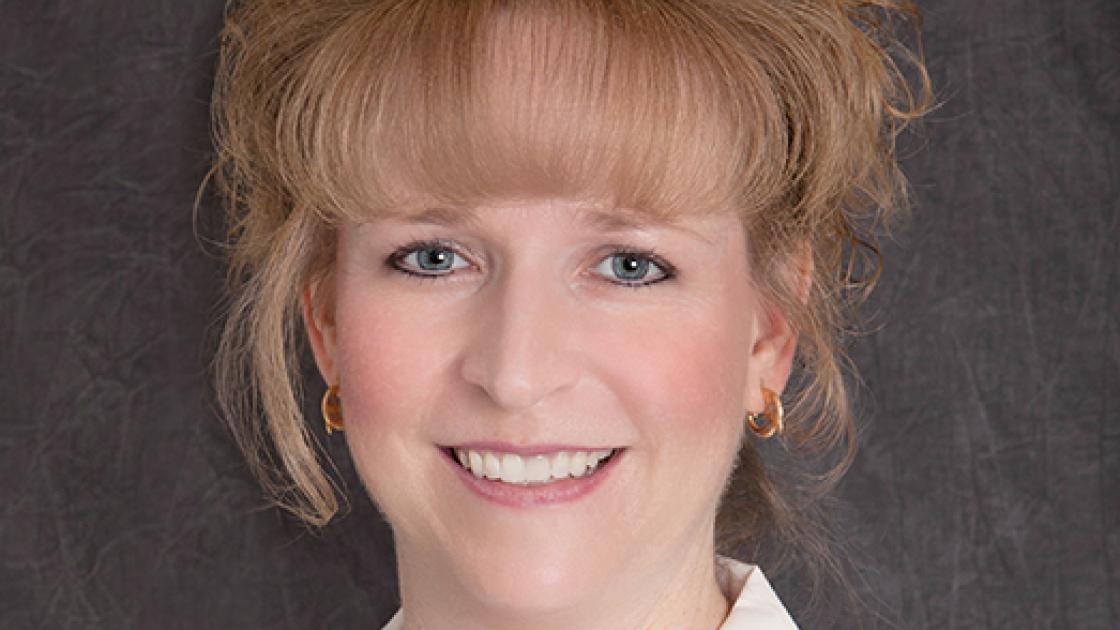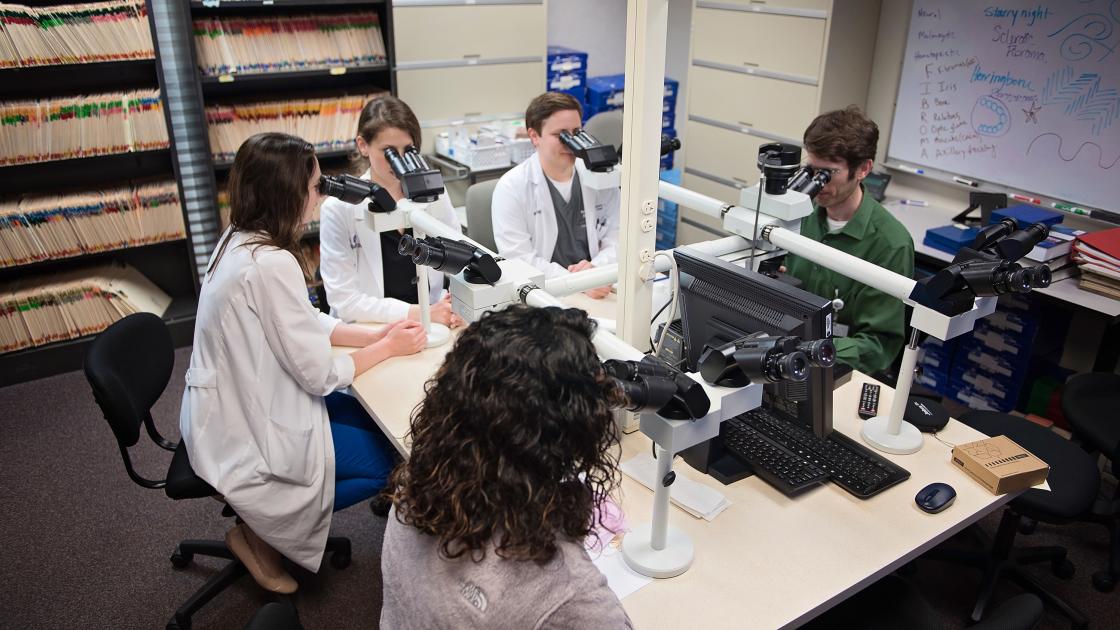
Derm residency in Springfield a 'dream' destination
Focus and flexibility build formidable dermatology residency program
By Steve Sandstrom
Fourth-year dermatology resident Cassandra Johnson, MD, remembers her Match Day well.
An initial interest in psychiatry waned during her time studying medicine at Loma Linda University in California, replaced by the desire to become a dermatologist.
“I opened my envelope, then I was just screaming and jumping up and down.” The Spirit Lake, Iowa, native was excited that after four years of medical school on the West Coast, her new training ground would be drivable for her and her family.
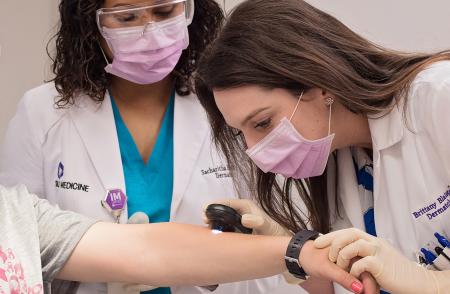
But it was bigger than that. “Derm is so competitive, most of us were nervous that we could even get into the field. I’d ranked into my dream specialty, and I really wanted to come to SIU.”
A first visit to Springfield had been just as memorable for the co-chief resident, for other reasons. In the pre-pandemic days, residency interviews were almost always in person. “I drove in a blizzard. We had dinner the night before with all the residents at someone’s house. We talked and played games, which was different than all the other places that I’d been.”
In hindsight, Dr. Johnson estimates that doing virtual residency interviews would have saved her roughly $20,000 in travel expenses. Yet she has no regrets. “I wouldn’t have got as good a sense of the program. On paper and online, there are bigger, more well-funded programs, but once you’re here, you can see it’s like a community, a family atmosphere. Everyone is very close and understanding.”
The communal spirit is cited regularly by the spectrum of residents involved in the program, and over decades it has become the tradition within the Department of Internal Medicine’s Division of Dermatology.
The current residency program director, Sacharitha Bowers, MD, credits her predecessor – division chief Lucinda Buescher, MD – with instilling it in the practice, its providers and residents back in Dr. Bowers’ formative years.
A Bloomington native, Bowers is an alumna of SIU School of Medicine (2004) and its dermatology residency program (2009). She brings a heightened sensitivity to the pressures facing medical students as they run the gauntlet of interviews leading up to Match Day. Her own experiences a generation ago were both jarring and redemptive.
“I got the call from [Associate Dean of Students] Dr. Constance on Monday of Match Week. He said, ‘Sach, you didn’t match.’ It was heartbreaking.”
Setting aside her disappointment, Bowers decided to pursue a research fellowship in Minneapolis. She reapplied to the National Residency Matching Program in the fall. Her actual Match Day was celebrated amid the fourth-year students in the Class of 2005 at the University of Minnesota, who had graciously invited her to join them. She had matched with SIU School of Medicine.
“It’s a pretty sweet comeback story,” she says. “I’m now the program director at the program where I originally didn’t match.”
PREPARED TO PRACTICE, SUCCEED
The ongoing popularity of SIU’s Dermatology Residency Program is not surprising, Bowers says. The school’s mission has always been community focused, with an emphasis on clinical care for a diverse population. There are approximately 400 applicants each year for the three residency slots. (The field used to be even tighter, with only two slots. The current PGY3 class is the first expanded to three.)
Each resident begins with a preliminary medicine intern year, offering rotations in internal medicine specialties. Years 2-4 are spent in the dermatology clinics. SIU also provides training using continuity clinics, where residents see the same patients for three years. This longitudinal learning is another reason the program’s graduates have done well, Bowers says.
The clinic’s central Illinois location draws a broad sampling of patients, many of whom farm or work outdoors. As a result, the residents see and treat a range of skin problems, with a large proportion caused by sun exposure. PGY2 resident Aliza Hasan, MD, and medical student Elek Wellman, MS4, both Springfield natives who matched to dermatology, cited the familiar, family environment as reason for ranking the “local” program so highly. “And the variety of the patient population really keeps work interesting,” Hasan says.
Once trained, the sky’s the limit.
“Our graduates have landed all across the United States, from the National Institutes of Health in Washington, D.C., to the city of Los Angeles, and in lots of towns and cities in between,” says Bowers. (L.A. is home to SIU program graduate Dr. Sandra Lee, aka ‘Dr. Pimple Popper,’ arguably the most famous dermatologists working today.)
"We are proud to have graduated academic dermatologists, private practice dermatologists, pediatric dermatologists, dermatopathologists, Mohs surgeons and researchers."
The program’s graduates also have a 100% board pass rate, a feat Bowers attributes to a myriad of factors.
“The residents are hard workers who know how to learn. The reading is intense and there’s a lot of it, but we have fewer clinical work hours, so they have more time available to focus on their studies during evenings and weekends.”
“Dr. Rebecca Larson [surgery] and Dr. Morgan Wilson [dermatopathology] both have phenomenal curricula. That’s two areas where they get an extreme amount of excellent and comprehensive targeted education. We also teach a lot on the fly, in our general dermatology, pediatric dermatology and procedural clinics. Additionally, we are always asking the residents for feedback on the curricula and their learning needs.”
The division’s success begins with selecting the right applicants, Bowers says. “We invite the people we think will thrive here. Their backgrounds pair well with our mission, as well as how we would like to grow.”
The Dermatology Residency Program was doing holistic reviews of applicants long before the practice became commonplace. “Dr. Buescher has always looked at the whole person, caring about their life experiences outside of medicine, how they’ve faced adversity. That’s a large reason for our graduates excelling.”
Bowers believes the faculty’s encouragement, support and flexibility has also been a critical factor. “Our faculty will unlock your potential,” she says.
It’s an effective formula, according to resident co-chief (and busy working mom) Emily Konopka, MD.
The Chicago native wanted to come to Springfield after meeting the faculty and residents in 2017. “Dr. Buescher and the team have created the best possible learning environment. It’s a well-rounded program, with continuous support for new endeavors and a total commitment to providing the best possible patient care.”
Dr. Lucinda Buescher likes to lead by example. “We role-model best practices in dermatology,” she says. “My colleagues show one another respect. We cover each other’s clinics and keep in mind that everyone has obligations and needs outside the office. It allows the residents and staff to thrive and reach their full potential when they enjoy and appreciate working here.”
Bowers says the top-down camaraderie breeds benefits. “It contributes to a culture of safety and well-being, which is important to health and to a healthy workplace. If you’re happy doing what you’re training to do, you’re going to have a fulfilling career.”

